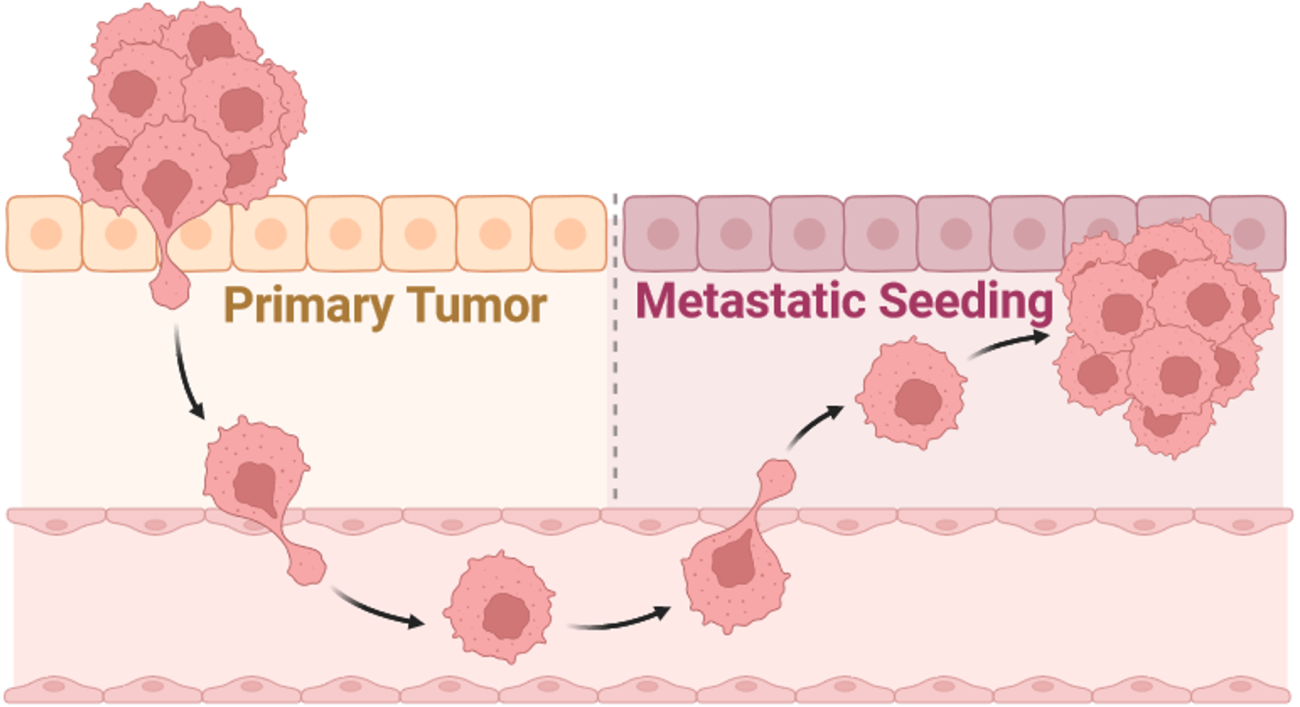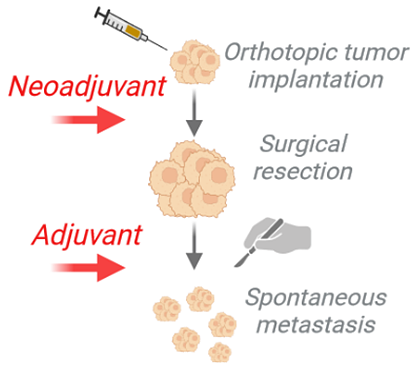Modeling metastasis to predict treatment outcomes
Working with colleagues in Canada and France, the Ebos Lab is developing novel preclinical methodologies for examining the effects of neoadjuvant therapy in animal models.
Our goal is to enable oncologists to distinguish which antiangiogenic therapies, or treatments designed to block blood vessels from assisting tumor growth, are optimal for improving overall survival after treatment has stopped and the tumor has been surgically removed.
Ortho-surgical metastasis
The Ebos Lab has optimized preclinical tumor models to closely mimic disease progression as it occurs in patients. This includes the orthotopic-implantation of tumors followed by surgical resection to allow for spontaneous metastasis.
Using these “ortho-surgical” metastasis models allows testing of treatments in the pre-operative (neoadjuvant) and post-operative (adjuvant) setting to identify drugs with unique anti-metastatic properties.
Key papers
- Ebos JM, et al. Neoadjuvant antiangiogenic therapy reveals contrasts in primary and metastatic tumor efficacy. EMBO Mol Med. 2014 Dec;6(12):1561-76. doi: 10.15252/emmm.201403989.
- Dolan M, et al. Enhanced efficacy of sitravatinib in metastatic models of antiangiogenic therapy resistance. PLoS One. 2019 Aug 1;14(8):e0220101. doi: 10.1371/journal.pone.0220101.
Machine-learning computational biology
The Ebos Lab has joined Dr. Sebastien Benzekry at the Cancer Centre of Marselle to develop computational machine-learning algorithms that can model metastatic progression in preclinical models after a primary tumor has been removed surgically.
This work has been used in models of breast and kidney cancer to predict metastatic recurrence, assess the impact of neoadjuvant/adjuvant therapy on disease progression and identify surrogate biomarkers that may be included in clinical trials.
Key papers
- Benzekry S, Mastri M, Nicolò C, Ebos, JML. Machine-learning and mechanistic modeling of primary and metastatic breast cancer growth after neoadjuvant targeted therapy. PLoS Comp Bio. 2024 (in press); doi: 10.1371/journal.pcbi.1012088
- Benzekry S, Tracz A, Mastri M, Corbelli R, Barbolosi D, Ebos JM. Modeling Spontaneous Metastasis following Surgery: An In Vivo-In Silico Approach. Cancer Res. 2016 Feb 1;76(3):535-47. doi: 10.1158/0008-5472.CAN-15-1389.
Connect with the Ebos Lab
EmailX (Twitter)BlueSkyLinkedIn
Department of Cancer Genetics & Genomics
Roswell Park Comprehensive Cancer Center
Elm and Carlton Streets
Buffalo, NY 14263


